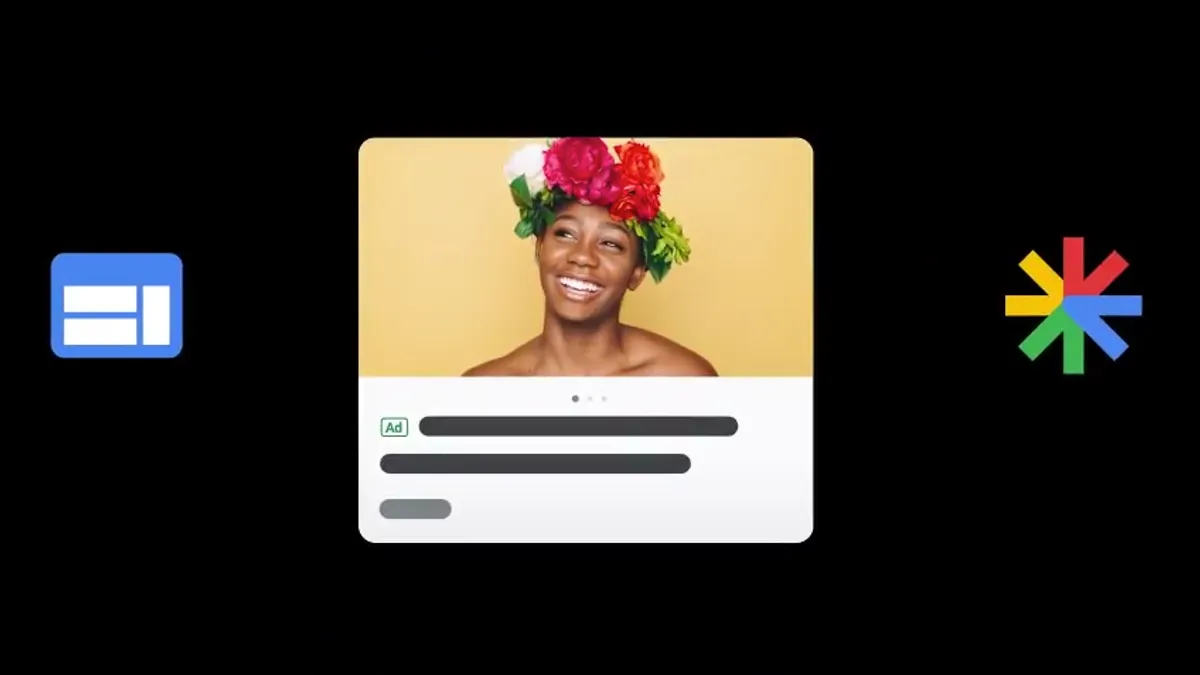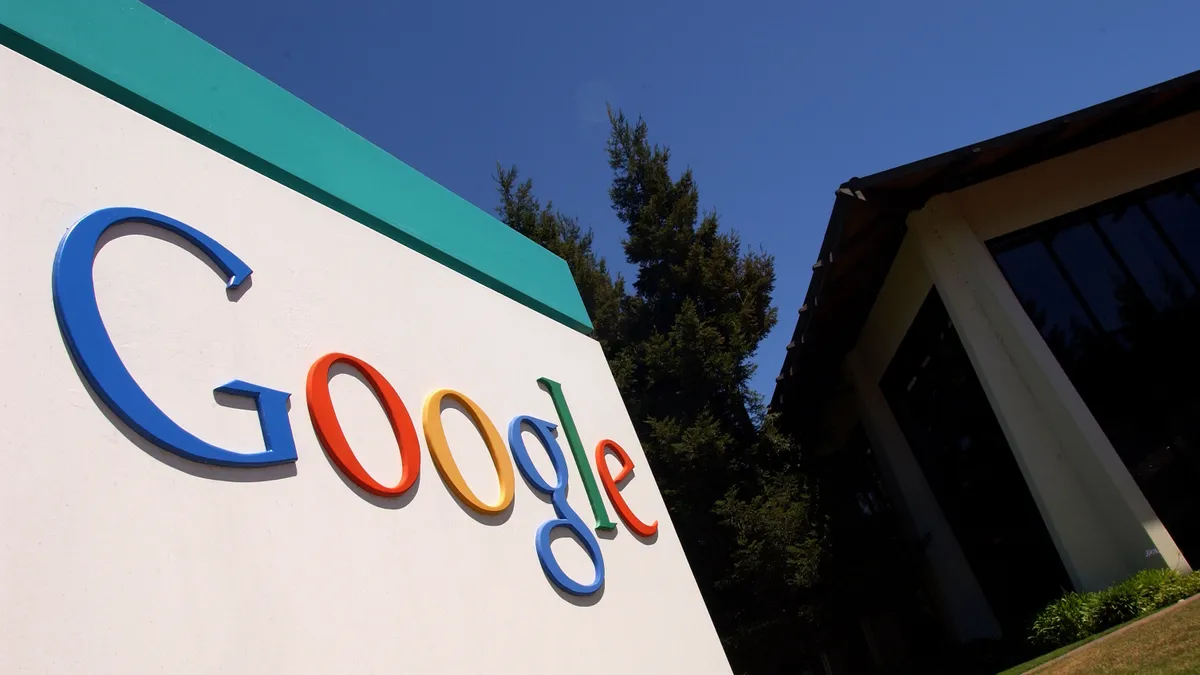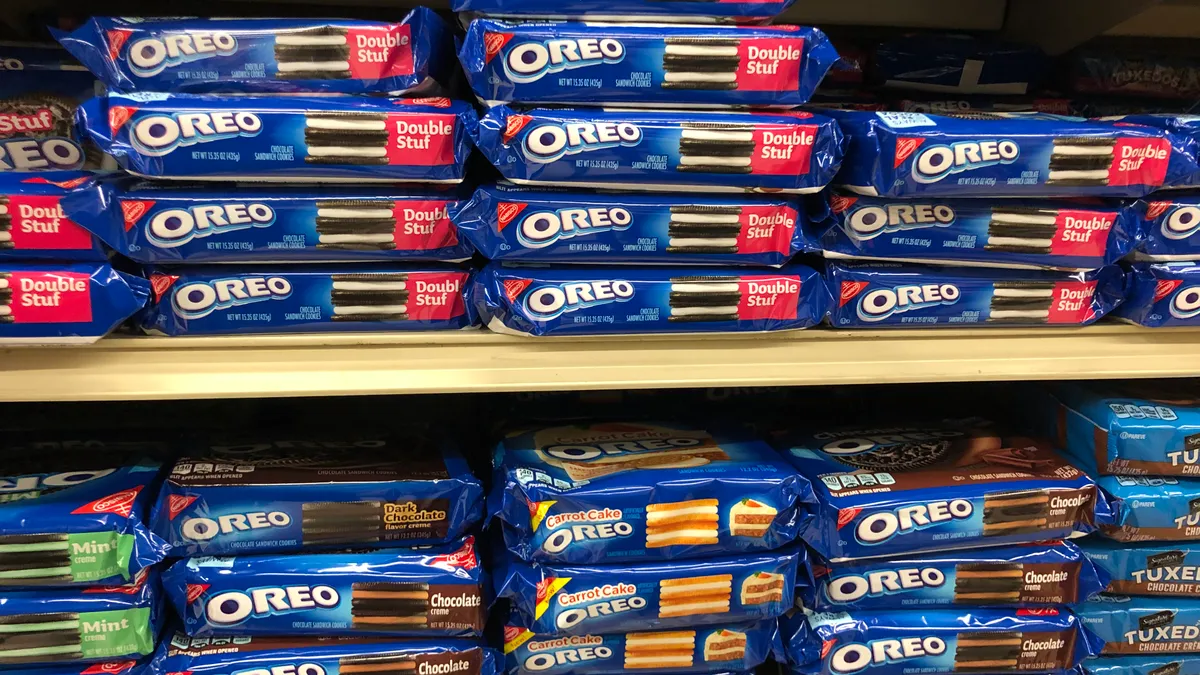Dive Brief:
-
Google announced several expansions to Google Ads and its e-commerce platform during the company's Marketing Livestream on May 27, according to a trio of company blog posts penned by Google executives.
-
The tech giant emphasized that marketers will have increased access to many Google Ads tools, including targeting model Customer Match, automated program Smart Bidding and performance tracking platform Performance Max. YouTube and Display ads will be integrated into these platforms to enhance data-driven measurement.
-
Google also grew its e-commerce presence by announcing partnerships with WooCommerce, GoDaddy and Square. This menu of new offerings sees Google expanding data alternatives for marketers as third-party cookies phase out of its platforms.
Dive Insight:
One week after announcing new additions to its Shopping platform, Google is again bolstering its e-commerce efforts, along with unveiling expansions to its Ads toolbox. Customer Match, which uses first-party data to target ads, will be made available to virtually all advertisers, and YouTube and Display will be integrated into all attribution models, making ads on those platforms easier to keep track of. With YouTube experiencing a 49% lift in ad revenue last quarter, advertisers continue to pay close attention to the channel when fulfilling their digital video needs.
Google also opened up Performance Max to thousands of more advertisers, a move that signals the way ads are bought on its platforms is changing. Performance Max, still currently in beta, is Google's fully automated mechanism to purchase ads from its inventory, and will be opened up to general availability later this year, per the blog post. The company announced three new location-based ad formats: Auto Suggest ads, which display an advertiser's location to users searching for businesses; Navigational ads, which are shown to users in Google Maps; and Similar Places ads, which show an advertiser's location in Maps to users searching for a business that is closed during the time of search.
The expansion of Google's Ads tools sees the tech giant offering marketers more data alternatives to target and track their ads. With the deprecation of third-party cookies quickly approaching, marketers will have less data to inform their advertising, which has left many uncertain about their futures on Google's platforms. This is why Google is widening the availability of first-party tools to more marketers, as well as adding new location-based options to enhance engagement. Together, these announcements could help marketers transition to Google's new requirements.
Google is also making moves to grow the number of retailers in its marketplace. Merchants on WooCommerce, GoDaddy and Square will all experience the same free and streamlined integration that Google offered to those on Shopify last week, demonstrating that building inventory continues to be one of the tech company's highest priorities for its marketplace.
As Google continues to stake a claim in online retail, its competitors are looking for new ways to engage shoppers and marketers. Walmart and TikTok in December conducted a livestream with shoppable content that resulted in a 25% lift to the video platform's following, leading to a second livestream in March. Earlier this month, Facebook launched its own shoppable livestream, a summer series with content from beauty and fashion brands.

















